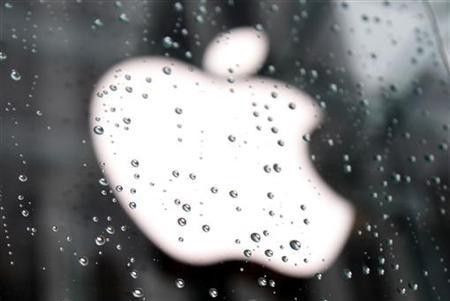A 'Dismayed' HTC Rebuffs Apple on Patent Case

HTC fired back at Apple on Tuesday, calling its lawsuit against the Taiwanese smartphone maker baseless, and vowed to continue to push back against Apple's legal fronts.
Apple took aim at rival HTC on Monday, filling a claim with the International Trade Commission (ITC) to ban the sales of the competing smartphones and tablets.
It also filed suits in Delaware as well.
HTC is dismayed at Apple's constant attempts at litigations instead of competing fairly in the market, said HTC general counsel Grace Lei in a statement.
HTC strongly denies all infringement claims raised by Apple in the past and present and reiterates our determination and commitment to protect our intellectual property rights, she said.
Apple said that HTC was infringing on groundbreaking technologies that Apple developed for its iPod, iPhone and iPad products.
But the Evo and Incredible maker noted that it introduced a touch-screen smartphone in June 2002 - a full five years before the iPhone made its debut.
The company rolled-out smartphones using Windows mobile software at the time, relying on resistive touch-screen technology -- thus requiring a stylus.
The first smartphone to use a capacitive touch screen was the LG Prada phone introduced in 2006, but the technology didn't reach a large audience until the introduction of the first iPhone in 2007.
As the smart phone market matured, the company said, Apple initiated litigation campaigns against many of its competitors, including HTC.
Apple's complaint, filed on July 8, asks the commission to conduct an investigation under Section 337 of the Tariff Act of 1930, regarding certain portable electronic devices and related software, according to a notice on the ITC website.
Section 337 of the Tariff Act of 1930 prohibits unfair import competition, which may threaten a U.S. industry, preventing its establishment or trade in the U.S. It also prevents the importation of things that infringe on U.S. patents and trademarks.
The U.S. International Trade Commission can issue cease and desist or exclusion orders to those found in violation.
The move comes more than a year after Apple filed suit against HTC, alleging 20 instances of patent infringement, all dealing with various elements of the iPhone.
We can sit by and watch competitors steal our patented inventions, or we can do something about it, Steve Jobs said at the time.
We've decided to do something about it. We think competition is healthy, but competitors should create their own original technology, not steal ours.
The move marks Apple's second ITC complaint against HTC; the first also included Nokia.
ITC staff recommended that the commission side with HTC and Nokia in that case, but the recommendation isn't binding, and the judge will issue his decision on August 5.
HTC had filed its own patent infringement suit against Apple with the ITC on May 12th of last year, and findings in that case are scheduled to be revealed on September 16th.
This suit marks the latest in Apple's battle to fend off competitors with legal tactics.
About two months ago, Apple sued Samsung for copying the look and feel of its iPhone and iPad with its Galaxy S line of smartphones and tablets.
Samsung countersued, but in late June, took its fight to the ITC.
Apple filed its own ITC complaint last week.
© Copyright IBTimes 2024. All rights reserved.





















